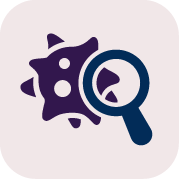Zero Leprosy

ILEP’s vision is a world free from leprosy. This is a challenging task, because leprosy is a complex disease. To work towards zero leprosy, we and our partners focus our attention on three interconnected areas: Zero Transmission, Zero Disability and Zero Stigma and Discrimination. In each area there is the need for research, to better understand problems and solutions, and for operational excellence in programmes in the field.
While each of the ‘Three Zeroes’ is important on its own, they are also inter-related. Early detection of leprosy is important because it prevents lifelong impairments and stops ongoing transmission. Preventing impairments and disabilities can in turn reduce stigma and discrimination. Likewise, reduced stigma and discrimination helps to lessen transmission, as people may be more likely to seek treatment early, and to reduce disabling barriers in communities and societies.

Zero Transmission
Challenges in Zero Transmission include a better understanding of transmission paths, more effective use of existing tools and knowledge to prevent leprosy and promptly find and treat new cases, and the development and deployment of a low-cost diagnostic test.

Zero Disability
Challenges in Zero Disability include ensuring early detection and treatment of the disease before impairments set in, accurate diagnosis and treatment of leprosy reactions and injuries to neuropathic limbs, and teaching life-long self-care.

Zero Discrimination
Challenges in Zero Discrimination include the prevalent dehumanising myths around leprosy, stigmatisation and social exclusion in the community, and laws and practices that discriminate against people affected by leprosy and deny their rights.